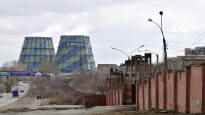Fortum invested heavily in Russia, but the war darkened the outlook. There are now 12 power plants in the deal, and there are fears that they will have to be sold cheaply.
Fortum’s upswing in the Russian market was interrupted by the war in Ukraine.
As early as March, Fortum said it would continue to operate, despite announcing the cessation of new investments. Now the company found the situation hopeless – and judging by everything, the decision was being prepared from the beginning of the war.
– It was clear to us from the beginning that operations in Russia could not continue as before, Fortum’s President and CEO Markus Rauramo says in an interview.
Twelve power plants to trade, who will buy?
An energy giant 50% owned by the Finnish state caught EUR 5.5 billion in Russia in 2008–2021. Fortum spent billions on the purchase and modernization of thermal and electric power plants, mainly those running on natural gas.
Now they are looking for a buyer for them.
– The main option is to sell our business, Rauramo says.
Fortum has twelve fully operational plants: Fortum’s own seven plants and its subsidiary Uniper’s five plants. The facilities are mainly located in Western Siberia and the Urals.
The buyer should most likely be a Russian company. Rauramo does not disclose whether Fortum has negotiated.
– The processes can take a long time and also require the approval of the Russian government.
There are fears that Fortum will have to sell its plant under pressure or even at a ridiculous price under pressure.
Fortum is also the market leader in the small Russian wind power market, which is 20 to 30 years behind Western Europe.
Fortum’s subsidiary Uniper has previously announced that it will divest its Russian subsidiary Unipro.
The result is frosty, but the coming quarters are expected to patch up
Fortum also announced its results for the first quarter of the year on Thursday. The result was EUR 438 million in frost.
However, the decline did not come from Russia, but from the natural gas market shaken with a big hand.
– The big change in earnings came from Uniper, Rauramo says.
According to Rauramo, Uniper kept the gas it previously bought in storage longer than planned, which is why part of the result for the first half of the year will not be made until later this year.
The problem of the Russian power plant is already visible in Fortum’s economy.
The company said on Tuesday it would write down EUR 2.1 billion from its operations in Russia. The remaining value of the holdings is now estimated at EUR 3.3 billion.
The big picture is confusing: “We have an energy crisis in Europe”
Although the full-year earnings outlook is “stable” according to Rauramo, the market is completely confused.
– We have an energy crisis in Europe, he says.
– Due to the war in Ukraine, the prices of fuel, raw materials and energy are at a record high. Governments and companies need to address this situation together.
Fortum is now working to increase the capacity of liquefied natural gas (LNG) to replace Russian natural gas.
Everyone else does the same.
A longer-term solution is likely to be found only in renewable energy. The transition of the subsidiary Uniper from fossil energy is a separate issue. In the Nordic countries, Fortum’s spearheads are nuclear power, wind and solar.
– The situation only emphasizes the importance of energy transfer. It is more likely to be done even faster than previously thought, Rauramo says.
Fortum was involved in Fennovoima’s nuclear power plant with a share of 6.6 percent. Does it have an interest in jumping in if a new big nuclear project starts somewhere?
Rauramo stops the idea and emphasizes that the focus is now on small nuclear reactors.
– Small modular [moduuleista koottavat] nuclear reactors are interesting, and we’re researching them, he says.
– But they need series production to get costs down.
